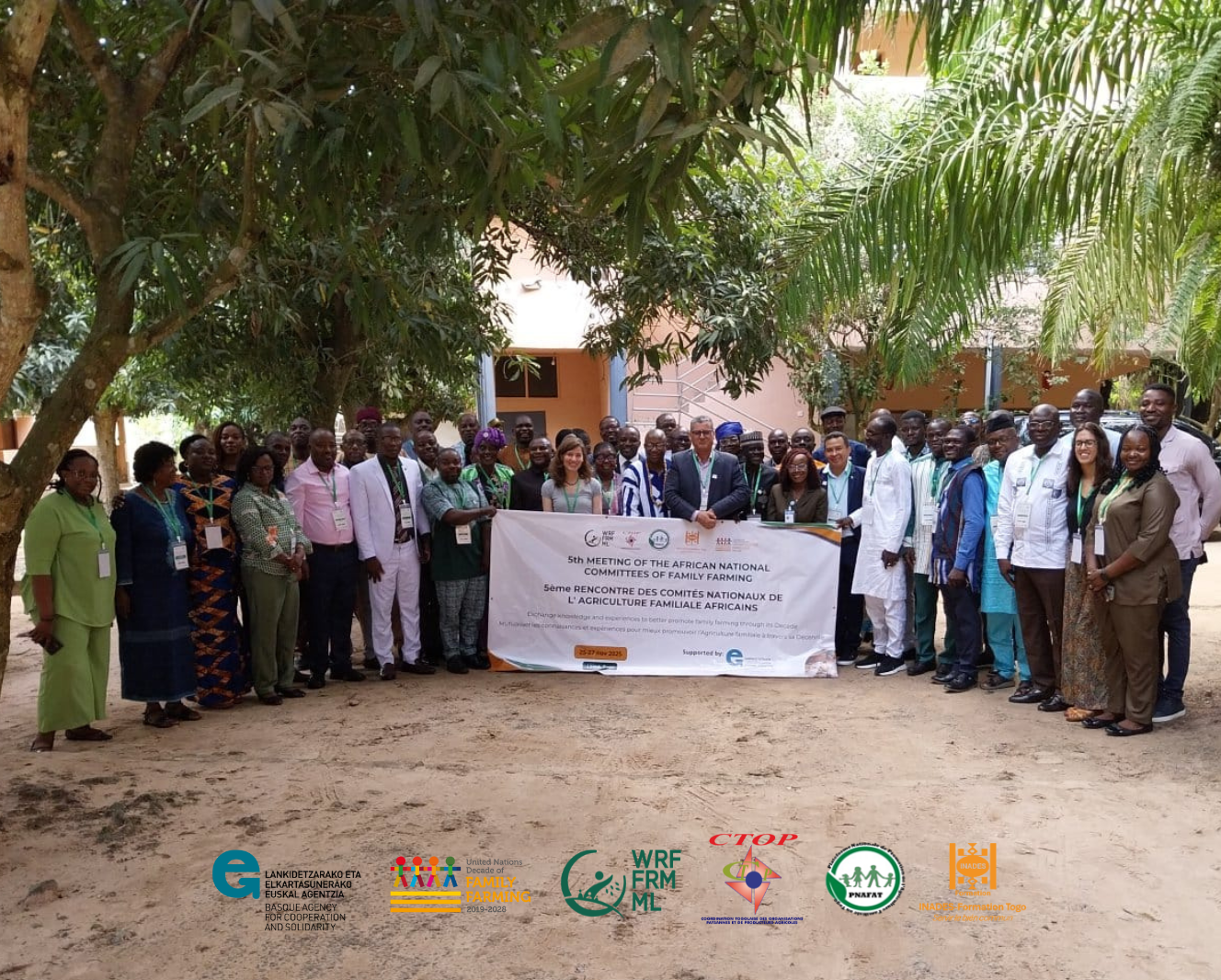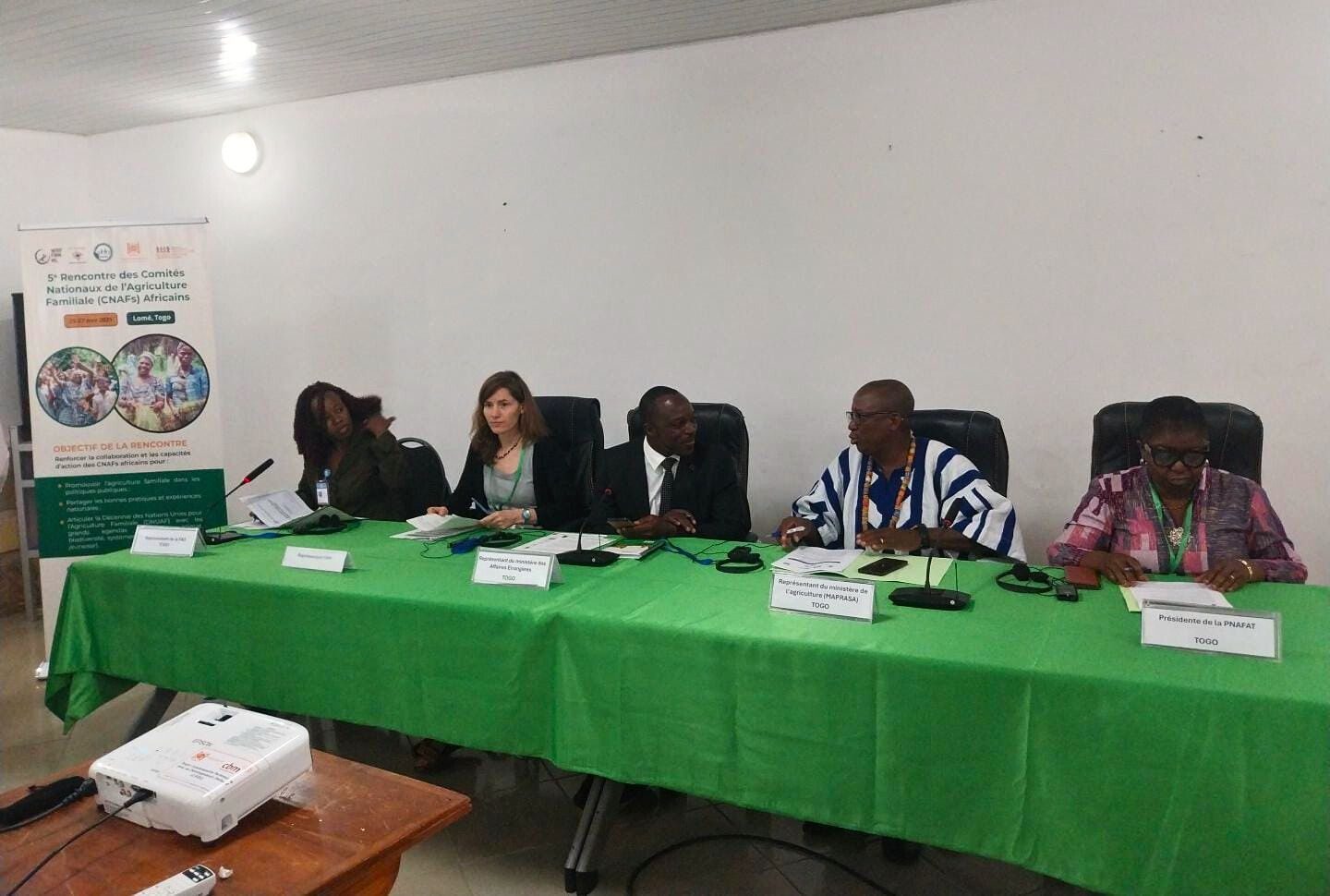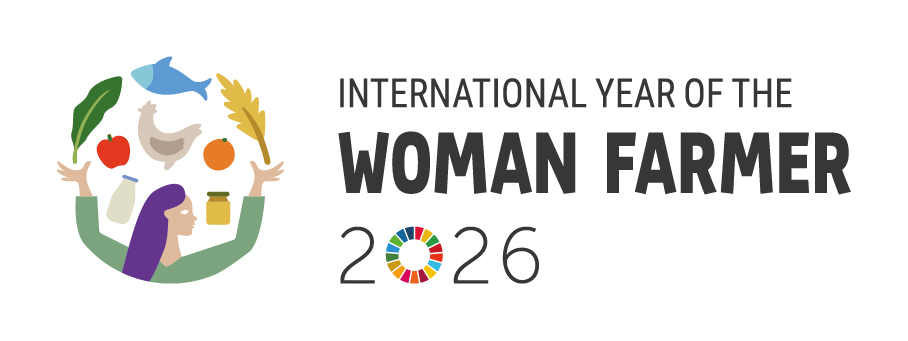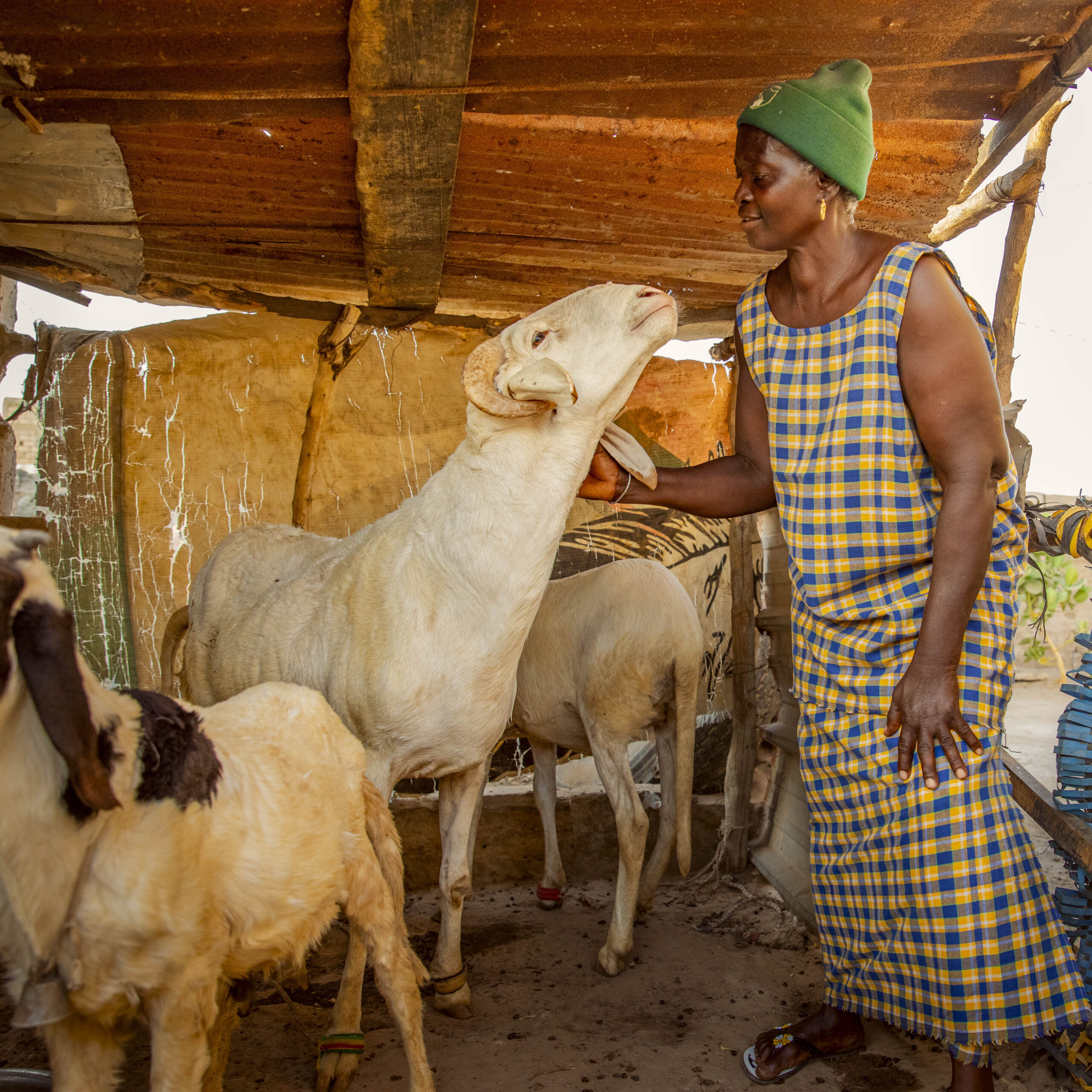The WRF promotes the meeting to encourage the effective participation of family farming organisations within the framework of the UN Decade of Family Farming
Lomé (Togo), 25 November 2025 – The World Rural Forum is organising the 5th Meeting of African National Committees of Family Farming (NCFF), which will take place from 25 to 27 November in Lomé, Togo. Representatives of NCFFs from 21 African countries, together with the Government of Togo and international partners such as the FAO, are gathering at the event to exchange experiences, strengthen capacities and promote public policies that boost family farming within the framework of the United Nations Decade of Family Farming (UNDFF 2019–2028).
Family farming produces more than 80% of the world’s food in terms of value and manages more than 80% of all agricultural land. This global significance is also reflected in Africa, where family farms provide livelihoods and employment for two-thirds of the population. In this context, the National Committees of Family Farming are key platforms for promoting policy dialogue between family farming organisations, governments and international entities, thereby strengthening the strategic role of family farming in countries.
According to Belén Citoler, Director of the World Rural Forum: “Thanks to the exchange of experiences and the reflections generated in peer-to-peer discussions, this type of meeting is a key opportunity to strengthen the capacities and knowledge of NCFFs and family farming organisations. This fifth meeting of African NCFFs will seek, in particular and through the framework of the Decade, to increase their participation in key national policy dialogue processes related to current challenges facing family farming, such as the transformation of food systems, the environmental agenda, gender equality and generational renewal. The National Action Plans of the UNDFF are a valuable tool for advancing national priorities on these topics”.
The WRF is organising the event in conjunction with the Togolese Coordination of Farmers’ and Agricultural Producers’ Organisations (CTOP), INADES Formation Togo and the National Platform for the Promotion of Family Farming in Togo (PNAFAT/NCFF of Togo), with the support of the Basque Agency for Cooperation and Solidarity (eLankidetza).
Objectives of the meeting
The meeting is designed as an opportunity to strengthen the capacity of family farming organisations to participate in national dialogue processes on food systems and climate change. The meeting also offers the chance to share good practices and lessons learned.
It will also encourage African National Committees (NCFFs) to promote multi-stakeholder dialogue processes and better policies for family farming, with a special emphasis on the situation of young people and women.
2026, International Year of the Woman Farmer
The United Nations General Assembly has declared 2026 as the International Year of the Woman Farmer. This initiative provides a new promotional framework that National Committees of Family Farming (NCFFs) can leverage to promote greater recognition of women in family farming and greater incorporation of their priorities into specific national policies. Within the framework of the Decade, 770 women’s organisations in family farming have been involved in the processes of developing and transforming agri-food systems through the National Committees of Family Farming.
The WRF and the UNDFF 2019-2028
Family farming has been recognised globally as a fundamental model for sustainable rural development through the United Nations Decade of Family Farming (UNDFF, 2019–2028), which encourages countries to develop active policies to support family farmers. Since the launch of the Decade, 18 National Action Plans and 385 policies, laws and regulations have been developed and approved to support family farming and the transformation towards more efficient, inclusive, resilient and sustainable agri-food systems.
Furthermore, family farming is directly linked to many of the Sustainable Development Goals of the 2030 Agenda, as it contributes significantly to food security, poverty reduction, gender equality, biodiversity conservation and resilience to climate change.
For this reason, the World Rural Forum identifies the Decade as a unique opportunity for countries to align agricultural transformation with their broader national priorities. In this process, the National Committees of Family Farming (NCFFs) play—and will continue to play—an essential role in advancing public policies that recognise the contributions of family farming to sustainable development.






